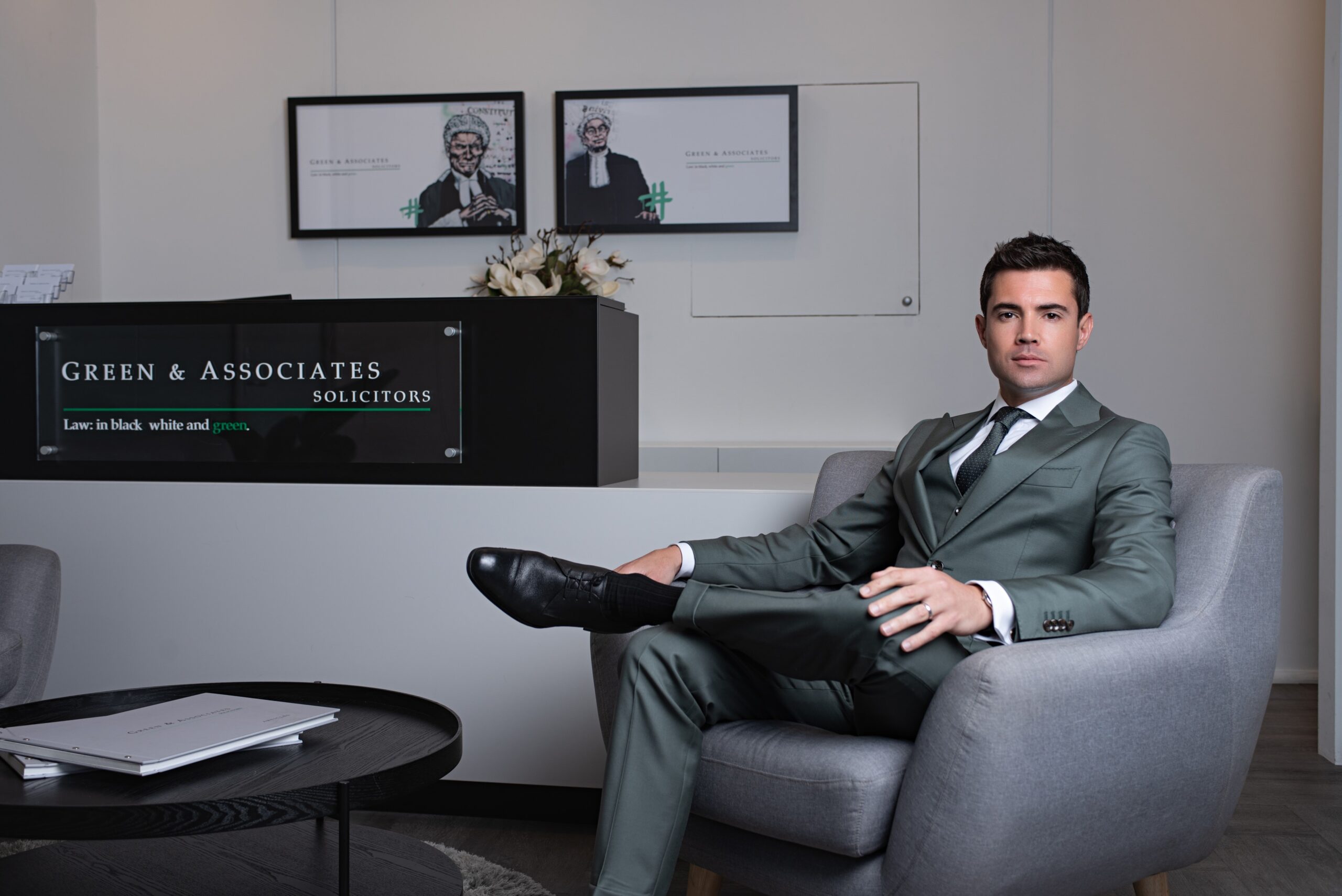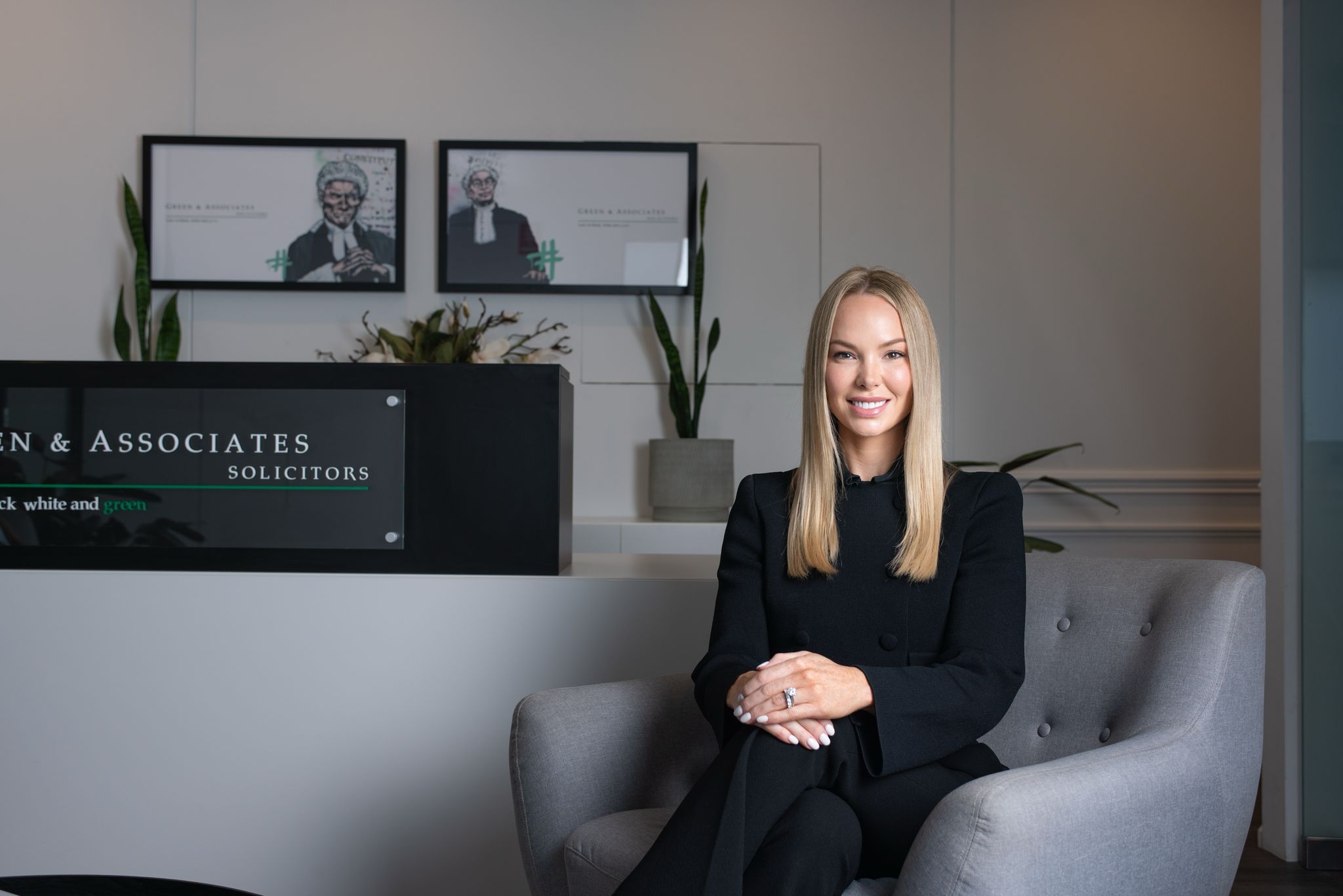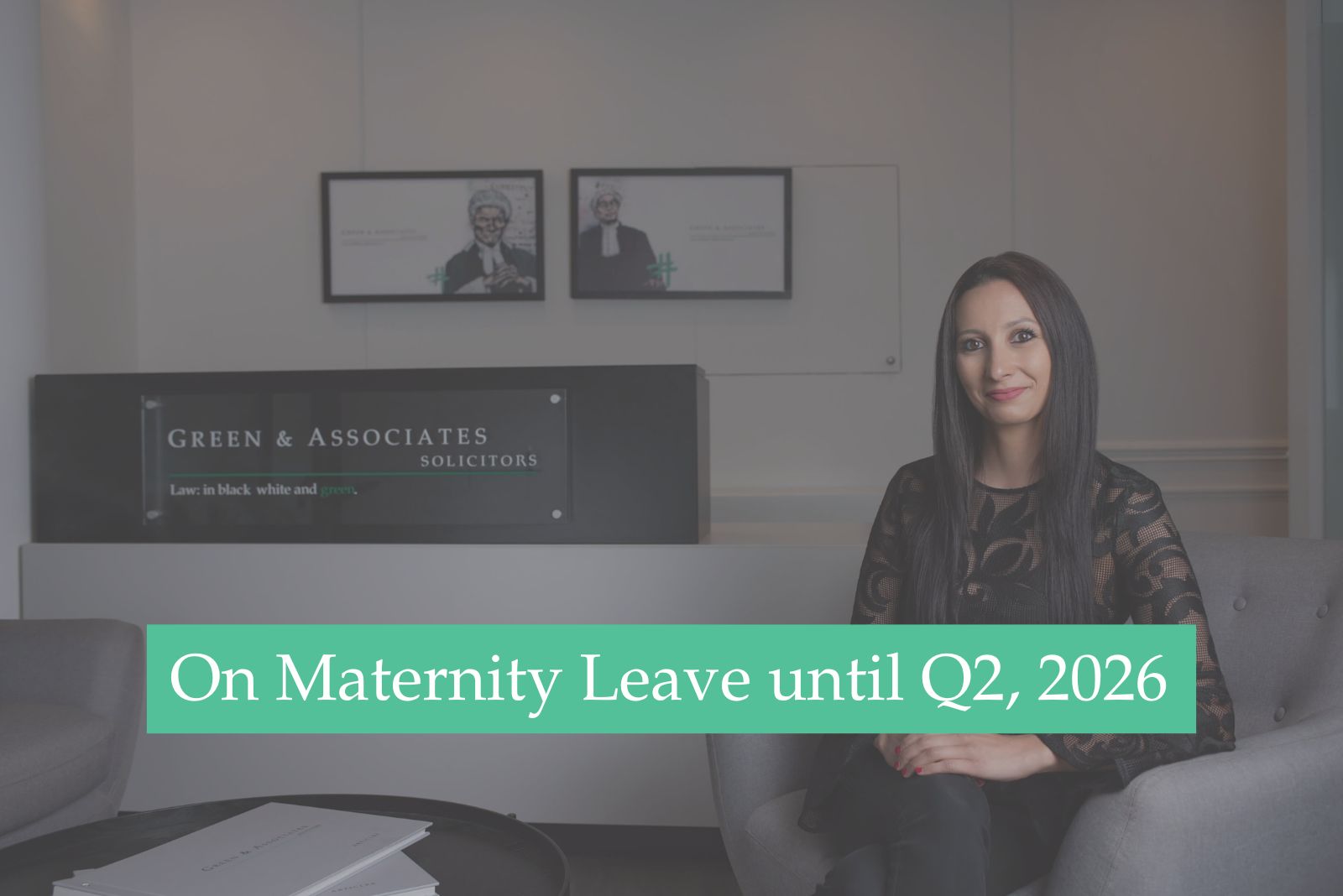WILLS & ESTATES LAWYERS SYDNEY
Speak To An Experienced Wills & Estates Lawyer In Sydney
Secure Your Will & Estate Matters With Confidence & Care
We understand the sensitivity these matters require and the importance of getting things right.
At Green & Associates, we help individuals and families across Sydney with all aspects of wills, estate planning, probate, and contested estates. Planning for the future is one of the most important steps you can take to protect your loved ones and your wishes. Whether you’re preparing a will, navigating probate, or managing a family estate, expert legal guidance can make the process clearer, faster and less stressful.
We have a dedicated Wills & Estates team, who are at the ready to work for you.
Who Our Wills and Estates Lawyers Can Help
- Individuals making their first will
- Families managing complex estates
- Executors and administrators of deceased estates
- Children of elderly parents
- Beneficiaries or excluded relatives in will disputes
- High-net-worth individuals with trusts or overseas assets
- Clients needing Powers of Attorney or Guardianship documents
- Assistance with superannuation or life insurance arrangements
- Support with Letters of Administration (no will)
- Drafting wills and testamentary trusts
- Probate, estate administration, and family provision claims
Green & Associates Wills & Estates Lawyers
At Green & Associates, our Wills & Estates work is divided into two broad categories: Estate Planning and Deceased Estate Services. Whether you’re planning ahead or managing an estate after someone’s passing, our experienced team provides tailored legal support under both streams.
What is a Will?
A will is a legal document that sets out how you want your assets to be distributed after your death. It allows you to choose who inherits what, appoint guardians for minor children, and nominate an executor to carry out your wishes.
A will is the foundation of any estate plan but it’s not the whole picture. Without one, your estate may be distributed according to a legal formula, not your intentions.
It’s not just paperwork. It’s peace of mind. We help you create a will that’s clear, valid, and tailored to the people and priorities that matter most.
What Happens If I Don’t Have a Will?
If you pass away without a valid will, your estate will be distributed according to NSW intestacy laws. This process does not consider personal wishes, relationships, or family dynamics. In some cases, it may even result in your estate being awarded to relatives you never intended or unnecessary disputes between loved ones.
What Is Estate Planning?
Estate planning involves setting out how your assets will be managed and distributed after your passing. It includes more than just a will, comprehensive planning may also involve: Powers of Attorney, Enduring Guardianship, Superannuation Directions, Testamentary Trusts and Advance Care Directives
We help you make sure your intentions are legally enforceable and structured in a way that supports the people you care about most.
Estate Planning vs Deceased Estate Services
What is an Estate Plan?
People often underestimate the importance of an Estate Plan, and there is a general misconception that it stops at the signing of a Will. However, Estate Planning is so much more than that. It is an action plan that sets out what you want when you have lost capacity and/or die, and prior to that, helps you build wealth while protecting your assets during your lifetime.
If you do not take control of your circumstances and take active steps to create your
Estate Plan, tax and other legal advantages may not be available to you, and important decisions could be made on your behalf by someone you would not choose, at your expense, if you lose capacity or have passed away. These decisions could be made by entities of the State such as NCAT’s Guardianship Division and/or the Supreme Court, who may not make decisions in line with what you had wished for yourself and your family.
An Estate Plan will cover who is to manage your financial affairs and the type of lifestyle and care you wish to have, if you lose capacity to make those decisions for yourself. It will also cover how your assets are to be distributed to your loved ones once you pass away, and who is to administer your Estate.
What is a Deceased Estate?
Put very simply, a Deceased Estate is made up of the deceased’s assets and property at the time of death. It is important to note that there is a difference between Estate assets and non-Estate assets.
Estate Assets are assets that the deceased had sole legal ownership over and can be distributed expressly by a Will. This includes any real estate, money in bank accounts, motor vehicles, and investments such as shares, stocks and cryptocurrency (provided those investments are not held by someone else, such as through superannuation or a managed fund). It also includes property such as jewellery, personal possessions and household items belonging solely to the deceased at the time of death.
Non-Estate assets are assets that the deceased did not have sole legal ownership over. Examples include assets in joint ownership with another party, discretionary/family trusts, company assets, superannuation and life insurance proceeds (for example if the policy was held through a superannuation fund).
It is also important to note that before the assets of the Estate can be distributed, the debts and liabilities of the deceased must first be paid off. This includes the payment of any loans, mortgages, income tax, capital gains tax, credit card debts and funeral expenses.
No matter which side of the estate process you’re on, planning or administration, we’re here to guide you every step of the way.
Estate Planning Services

Powers of Attorney

Enduring Guardians

International Wills & Estates

Wills
Deceased Estate Services

Grant of Probate

Letters of Administration

Family Provision Claims
Meet Our Team

Dominic Green
Principal Solicitor
Specialising in: Criminal Law, Litigation & Disputes, Commercial Law, Corporations, Contracting & Regulator Affairs, Estate Law.

Lori Kadish
Associate

Lauren Cullen
Associate

Myriam Lahcini
Associate

Riva Thapa
Paralegal

Kristina Zervas
Paralegal

Angus McDonald
Paralegal

Ken Ozdemir
Marketing Manager

Ivy Green
Security & Debt Collection
Since joining the firm in 2021, Ivy has become an intergral part of the team. She is responsible for debt collection, office security and the mental wellness of both staff and clients.
FAQs: WILLS & ESTATES
What Do I Need To Know About Challenging or Contesting a Will
Family disputes can arise when someone feels they were unfairly left out of a will or suspects the will is invalid. In NSW, eligible people (e.g. spouses, children, dependants) can lodge a Family Provision Claim if they believe they were not properly provided for. We represent both claimants and executors, and aim to resolve matters efficiently and with dignity.
What makes a will valid in NSW?
It must be in writing, signed by the will-maker, and witnessed by two people who are not beneficiaries. Mistakes or informal wills may still be considered, but can lead to costly disputes.
When should I update my will?
After major life events, like marriage, divorce, children, or asset changes, are good times to review your will. We recommend reviewing it every 3 to 5 years, even if your circumstances haven’t changed.
What is the difference between Power of Attorney and Enduring Guardianship?
Power of Attorney covers financial decisions. Enduring Guardianship covers health and lifestyle decisions. Both come into effect if you lose the capacity to decide for yourself.
What is a testamentary trust and do I need one?
A testamentary trust is a trust written into your will. It helps protect assets from divorce, bankruptcy, or poor financial management and can provide tax advantages. They’re especially useful for blended families, children with disabilities, or significant estates.
How long does estate administration take?
Simple estates may be finalised in 6 to 9 months. More complex matters or disputed wills can take longer. We keep you informed every step of the way and aim to resolve matters as efficiently as possible.
What are the fees and charges?
Fees vary depending on the complexity of your matter, whether you’re drafting a straightforward will, contesting a family provision claim, or managing probate for a large estate. We offer fixed fees for many estate planning services and transparent quotes for all others before any work begins.
How many years have you been practicing wills and estates law?
While our team has broad experience in the law, Green & Associates has spent over a decade building a reputation in wills, estates, and litigation.
Where is Green & Associates Solicitors located?
We’re based in Kings Cross, Sydney, just minutes from the CBD. We also work with clients remotely across NSW and internationally, especially in complex estate matters involving cross-border assets or overseas beneficiaries.
What type of wills and estates matters can you help me with?
We advise on all aspects of wills and estates law, including will drafting, testamentary trusts, probate, letters of administration, family provision claims, contested estates, Powers of Attorney, Enduring Guardianship, and superannuation disputes.
What happens after the initial consultation?
We will confirm our advice in writing, provide a fee proposal, and set out a clear plan of action. If you choose to proceed, we begin work immediately and keep you informed at every stage of the process.
Will I need to go to court?
Not always. Many matters, including disputes, can be resolved through negotiation or mediation. However, if a dispute cannot be settled, we are fully prepared to represent you in court and guide you through the entire process.